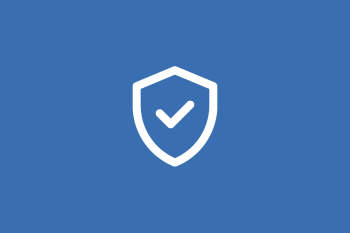
How to keep your crypto safe
We've all been hearing stories and articles about people losing their wallets, forgetting their phrases, and losing millions by being a target for hackers. When you start dabbling with cryptocurrency and NFTs, you should learn to avoid that and take care of any security concerns. With fiat currency, your money is under the protection of your bank, while with cryptocurrency, you are the only person responsible for the protection of these assets. Don't worry too much; we've done our research and compiled the best ways to store your cryptocurrency and keep it safe.
We implore you to follow the following methods and take your time keeping your security top-notch.
1. Use a cold wallet If you're not familiar with cold wallets is, they are simply hardware that stores your crypto offline. Regardless of cost, it's the most crucial investment in storing cryptocurrency.
2. Use multiple wallets Since you can create as many wallets as you want, one thing you could do is diversify your assets in various wallets. For instance: keep a few diversified hot wallets for everyday transactions and keep more considerable investments in a cold wallet. This way, your loss will be much less significant if any hackers manage to breach your wallets.
3. Change your passwords regularly. We recommend using 1Password to save and store your passwords and ensure they're strong, complex, and not part of any data leaks (check out https://haveibeenpwned.com to double-check if your email or phone number have been compromised in a data breach).
4. Use a YubiKey A YubiKey is a tiny USB device that you plug in to verify your identity. It generates a unique passcode every time you touch or tap a button while it is plugged in. It's considered the most secure tool for 2fA (two-factor authentication). The passcode mentioned above can be used to sign in, deposit, or withdraw funds from your account.
5. Use 2FA If you can't use a YubiKey, make sure you utilize 2FA (e.g., Google Authenticator) in addition to strong passwords. Note: Sim swap attacks ARE a thing (read more here), so you must always be careful with using SMS-based 2FA.
6. Use Cryptosteel to record your recovery phrases. Cryptosteel capsules are backup tools often used to record and secure data, such as seed and recovery phrases. The device is resistant to fire, water, electric shock, physical damage, and extreme conditions.
7. Avoid phishing scams Do not EVER click any links on Discord, email, or any other platform. If it's somebody you know, always double-check that it's them. We recently put out a post on the most common NFT scams (read here), which will give you an idea of common scams that happen in the cryptocurrency and NFT space.
8. Use a VPN As you probably know, VPNs encrypt your data, which will help you avoid hackers attempting to see your transactions. VPNs also protect your IP address, so your physical location is not tied to your transactions or wallet address. This is an extra layer of security against malware and phishing attacks.
The cryptocurrency space is constantly changing. It is entirely your responsibility to secure your assets and ensure you're constantly updated on security techniques and preventative strategies. Be safe out there!


